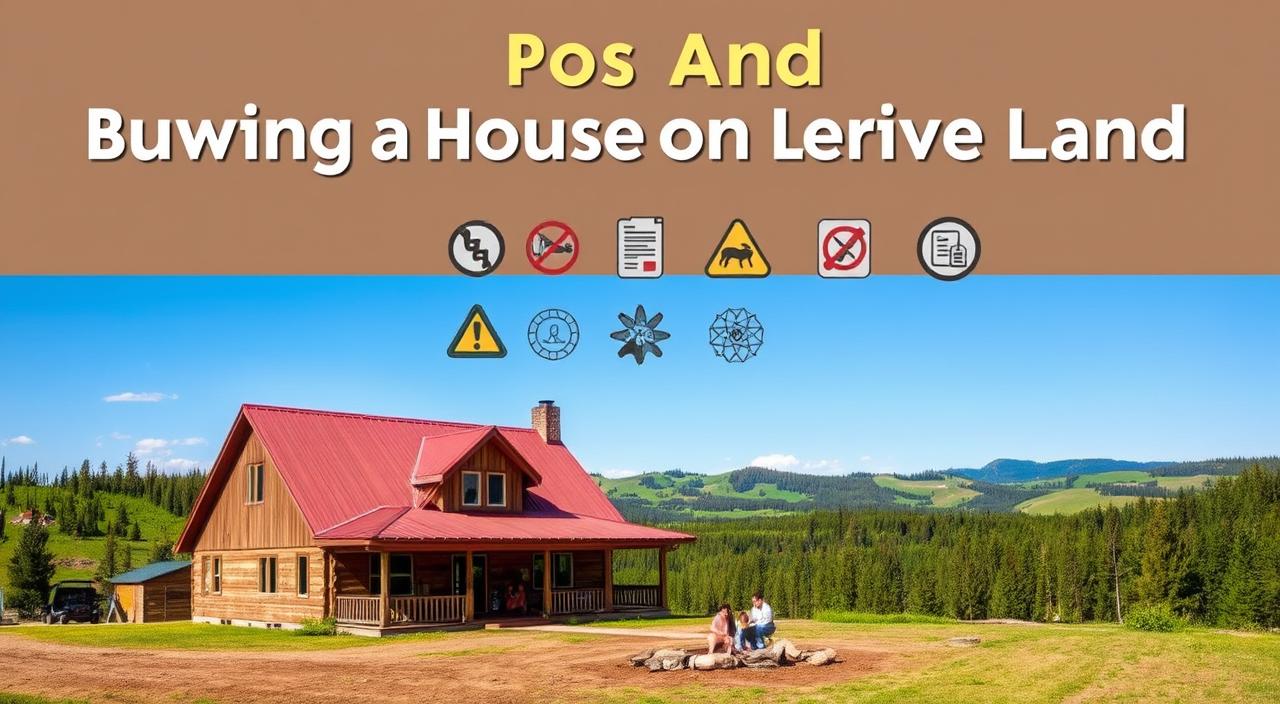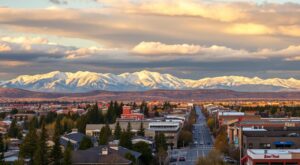Thinking about buying a house on reserve land? It’s key to know the good and bad sides of owning property on reserve land. The process is complex, and understanding both sides is vital for a smart choice. A comparison table will help you decide what’s best for you.
Knowing the pros and cons of reserve land property ownership is important. It helps buyers make a well-informed decision. We aim to give you a detailed look at both sides, so you can choose wisely.
Introduction to Reserve Land
Reserve land property ownership comes with its own set of benefits and challenges. Before you decide, it’s important to weigh the pros and cons. This way, you can see if owning a house on reserve land is the right choice for you.
Key Takeaways
- Understand the pros and cons of buying a house on reserve land
- Consider reserve land property ownership and its implications
- Weigh the benefits and challenges of buying a house on reserve land
- Use a comparison table to make an informed decision
- Research the process of buying a house on reserve land
- Be aware of the unique aspects of reserve land property ownership
Understanding Reserve Land and Its Ownership
Thinking about buying property on Native American reserve land? It’s key to know about reserve land and who owns it. Reserve land is set aside for Native American tribes. Its history is complex, shaped by many laws and policies.
The journey of buying property on Native American reserve land starts with understanding its history and current laws. Important things to keep in mind include:
- Historical context: Laws like the Indian Reorganization Act of 1934 and the Native American Housing Assistance and Self-Determination Act of 1996 have greatly influenced reserve lands.
- Current legal framework: The rules for reserve lands are complex, blending federal, state, and tribal laws.
- Reserve land property ownership means knowing the rights and duties of landowners. It also involves the benefits and challenges of owning land on a reserve.
In short, knowing about reserve land and its ownership is vital for those looking to buy property on Native American reserve land. By understanding the history and current laws, people can make smart choices. They can also navigate the complex world of reserve land property ownership.
The Pros of Buying on Reserve Land
Buying a house on reserve land has many benefits. It’s more affordable than traditional housing. The cost of living here is lower, thanks to cheaper land and taxes.
Living here lets you dive into Native American culture. You’ll join a tight-knit community. For those wanting to experience a new culture, this is a great chance. You can learn more about zero-lot-line homes on reserve land to see the good and bad sides.
- Affordability: Lower land costs and reduced property taxes make it an attractive option for those looking for affordable housing.
- Community growth: The opportunity for community growth and development, leading to higher property values and a stronger community.
- Cultural experiences: The chance to experience Native American culture and be part of a close-knit community.
These benefits of living on reserve land make it a great choice for those seeking a unique and affordable home.
The Cons of Buying on Reserve Land
Thinking about buying a house on reserve land? It’s key to know the downsides. One big issue is the few financing options. This makes getting a mortgage hard, which can stop you from buying a home.
Another big thing to think about is the rules on changing the property. These rules might stop you from making the changes you want. Uncertainty of land use changes can also hurt the property’s value and your life quality. Buyers need to think about these problems before deciding.
Some important things to consider are:
- Limited access to financing options, making it challenging to secure a mortgage
- Restrictions on property modifications, limiting the ability to make changes to the property
- Uncertainty of land use changes, affecting the value of the property and quality of life
Buyers should really think about these points. Knowing the downsides of reserve land ownership helps make a smart choice. This way, buyers can find a home that fits their needs and goals.
Native American Rights and Land Use
When you think about Native American reservation property investment, it’s key to know about tribal sovereignty. This means Native American tribes can govern themselves and manage their lands. It’s important for understanding the rights of landowners on reserve land.
Landowners on reserve land have rights, like using and occupying the land. But, they also follow the tribe’s laws and regulations. Investors should know these rights and rules before investing in Native American reservation property.
- Right to use and occupy the land
- Right to participate in tribal decision-making processes
- Right to protection under tribal laws and regulations
Knowing about Native American rights is vital for investors. It can affect the land’s value and use. By understanding tribal sovereignty and landowners’ rights, investors can make better choices about Native American reservation property investment.
Impact on Property Values
Thinking about buying a house on reserve land means considering its impact on property values. The decision to buy on reserve land can greatly affect a property’s value. Location, size, and condition are key in determining value.
Buying a house on reserve land can be affordable and offer unique cultural experiences. Yet, property values can be influenced by the area’s housing demand and reserve land regulations.
- Proximity to amenities and services
- Access to natural resources and sustainability
- Land management practices and restrictions
Knowing these factors helps buyers make informed decisions. This affects property values when buying a house on reserve land.
Homeowner Responsibilities on Reserve Land
Thinking about buying real estate on reserve land? It’s key to know what comes with owning a home there. The duties can change based on the lease and the tribe’s rules.
Homeowners usually have to pay rent and follow certain rules. Maintenance and upkeep duties are also important. This includes fixing and keeping the property in good shape.
Understanding Lease Agreements
Lease agreements can be tricky. It’s important for homeowners to get what they mean. This includes knowing how long the lease lasts, how much rent to pay, and any rules about changing the property.
Maintenance and Upkeep Duties
Homeowners on reserve land must take care of their homes. This means doing things like mowing the lawn, fixing plumbing, and handling electrical work. Remember to include these costs when thinking about considerations for buying real estate on reserve land.
Community and Lifestyle Considerations
Living on reserve land offers a unique and rewarding lifestyle. It comes with benefits of living on reserve land like a strong community and cultural identity. When thinking about moving to reserve land, consider the community and lifestyle considerations involved. For example, the homeownership guide highlights the pros and cons of owning a home, including community growth and cultural experiences.
One big advantage of living on reserve land is the tight-knit and supportive tribal communities. People come together for cultural events and support each other. Living here also means access to community centers, healthcare, and schools. The state’s natural beauty and outdoor activities, as mentioned in the pros and cons of living in, are big draws for those looking to move.
Social Dynamics in Tribal Communities
Social dynamics in tribal communities are built on cooperation and respect. People work together to keep facilities running, organize events, and support local businesses. This community spirit can be very rewarding for those who value close relationships and a sense of belonging.
Access to Amenities and Services
Access to amenities and services is key when considering reserve land living. Some areas may have limited access to stores, healthcare, and schools. Others may have a wide range of services. It’s important to research the specific reserve land you’re interested in to understand what’s available and how it will affect your lifestyle.
Environmental Considerations
When buying a house on reserve land, it’s key to think about the environmental considerations. Reserve lands are full of natural resources like water, timber, and minerals. It’s important to manage these resources well to keep them available for the future. Buyers should look into the area’s sustainability efforts and how they affect the environment.
Some important things to think about include:
- Access to clean water and waste management systems
- Renewable energy sources and energy efficiency measures
- Policies for preserving natural habitats and wildlife
To learn more about living on reserve land, check out reserve land resources. There, you can find stories from others and the role of environmental considerations in their choices.
Land Management Practices
It’s also important to know about the land management practices on the reserve land. This means understanding any rules or limits on how the land can be used. It also involves looking at how the community handles natural resources and sustainability. By thinking about these environmental considerations, buyers can make a smart choice. They can also help protect the environment for the future.
Legal Considerations When Purchasing
Buying a house on reserve land comes with legal considerations. You need to know the laws and rules for reserve lands. Also, you should be aware of title and ownership issues. The Tribal Leaders Handbook on Homeownership says dealing with land issues is key for a good deal.
Some important things to think about when buying a house on reserve land are:
- Look into the property’s past and any title and ownership issues
- Learn about the laws and rules for reserve lands
- Work with tribal governments for a smooth process
Buying a house on reserve land is different from a regular house. It’s like the pros and cons of owning a houseboat. But, with the right help, it can be a great experience.
To show how important legal considerations
Understanding Title and Ownership Issues
It’s vital to understand title and ownership issues when buying a house on reserve land. This means looking into the property’s history and any possible problems.
Working with Tribal Governments
Working with tribal governments is key for a smooth deal when buying a house on reserve land. You need to know the laws and rules for reserve lands. And make sure everyone agrees.
Summary: Weighing Your Options
Thinking about buying a house on reserve land? It’s key to look at both sides. A summary of the main points can guide you in making a smart choice. The good things include lower costs, chances for community growth, and cultural experiences. But, there are downsides like fewer loan options, rules on changing the property, and unsure land use changes.
Understanding the pros and cons of buying a house on reserve land is vital for a good decision. Here are some important things to think about:
- Affordability: Reserve land often has cheaper homes than regular ones.
- Community: Buying here can help your community grow and offer unique cultural experiences.
- Financing: There might be fewer loan choices for buyers on reserve land.
In short, buying a house on reserve land needs careful thought. By looking at the good and bad sides, you can choose what’s best for you. A detailed summary of the main points can help you through the complex buying process on reserve land.
Comparison Table: Pros vs. Cons of Buying on Reserve Land
Thinking about buying a home on reserve land? It’s key to look at the good and bad sides. We’ve made a table to help you decide. It shows the main points of buying a home on reserve land.
Pros of Buying on Reserve Land
• Homes on reserve land are often cheaper than regular houses in the same area.
• Buying here helps grow the local community.
• You get to dive into the rich culture of Native American communities.
Cons of Buying on Reserve Land
• Getting a loan for a home here can be tough. Lenders might be cautious.
• You might not be able to change your home much. There are rules.
• The future of the land can change. Tribal decisions can affect homeowners.
Looking at this table can help you decide if buying a home on reserve land is right for you. It’s about your goals and what you can afford.



